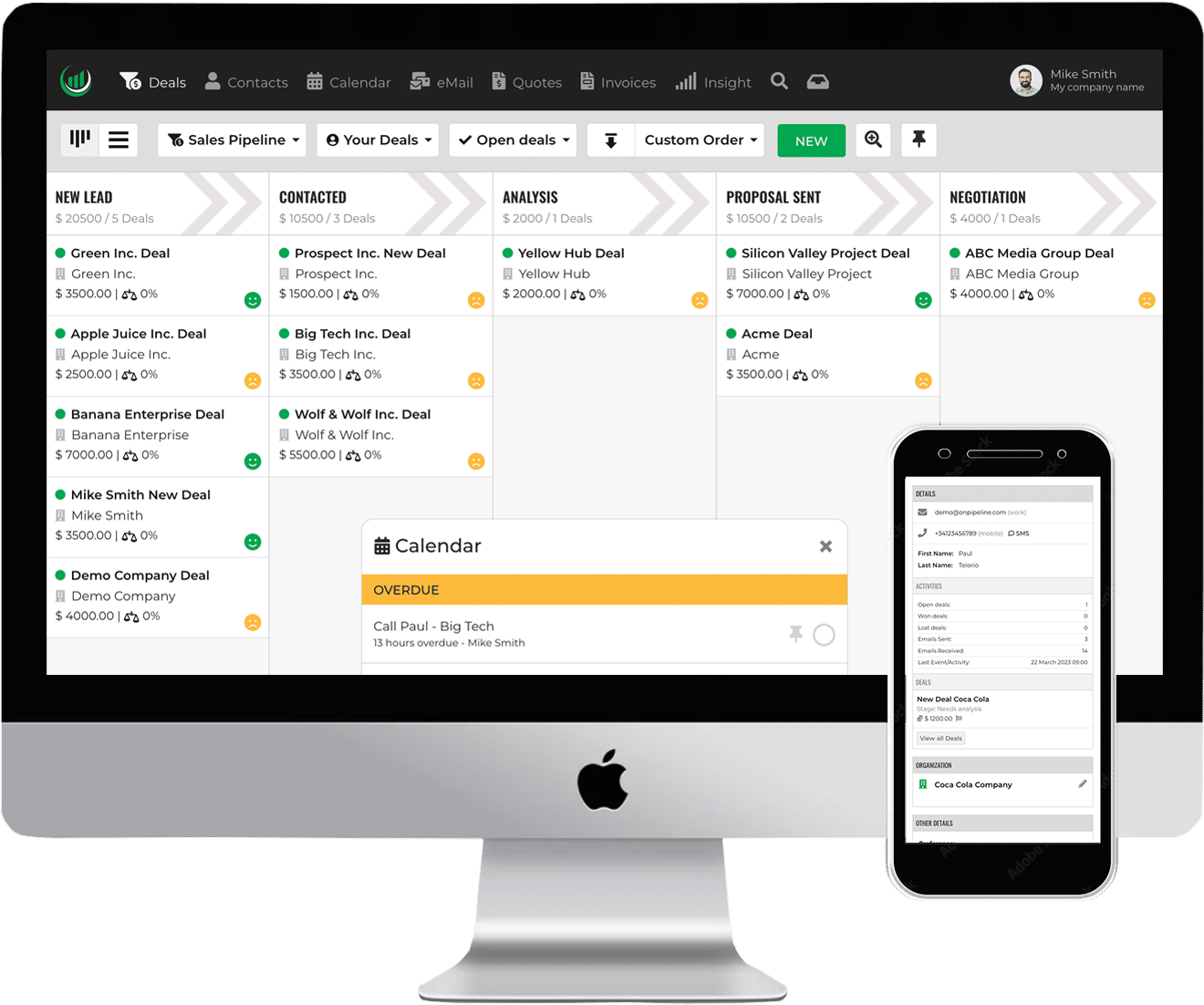When prospects receive repeated contacts, they simply dismiss them or respond with a dismissive “no”. Sales teams are demoralized. They face frustration and falling productivity.
Oversaturated Channels
The proliferation of digital marketing channels, including email, social media, and paid advertising, has created an overwhelming landscape for prospects. Bombarded with unsolicited messages, they may become desensitized, leading to fatigue and disengagement.
The oversaturation of prospecting channels poses several detrimental consequences for businesses. Reduced lead generation can hinder sales growth and strain marketing budgets.
Small Business ROI: An issue
The return on investment (ROI) in marketing campaigns for small brands can be significantly lower than that of large, established brands.
Let’s take an online campaign for example. A strong brand will have a higher CTR, but for the same number of clicks, it will likely see a larger number of leads.
The key point is that even if the small business gets leads, if the same user is in touch with a well-known brand, the chances of them buying from the small brand drop by 10 times.
Imagine a campaign with a CPL of $30 and a volume of 100 leads.
If a small business converts only 1% of these leads into sales, it will have a customer acquisition cost (CAC) of $3,000. On the other hand, we have a consolidated brand that converts 15%, with a customer acquisition cost of only $200.
These numbers are an example and can vary from industry to industry and from brand to brand, but they are useful for understanding the concept.
A study by Nielsen found that 92% of consumers are willing to pay more for a product from a brand they trust. Another study by Edelman found that 83% of consumers believe that brand reputation is more important than price when making purchasing decisions.
Conversion to sales increases with brand reputation. This is why investing in a brand is importantin the medium and long term!
Achieving Engagement
People get tired in traditional channels like email and cold calling. There, prospects may see messages as impersonal and intrusive.
To combat this, businesses must focus on personalized and relevant messaging. The messages must resonate with the specific needs and interests of individual prospects.
Don’t mass-broadcast generic emails or make cold calls. Instead, send fewer, higher-quality messages. They should show real understanding and value.
A CRM is certainly useful for profiling contacts and approaching them with personalized messages.
Permission-Based Marketing
Getting clear permission from prospects before contacting them can make the difference. This can be done with opt-in forms on websites or landing pages.
They let prospects show their interest in getting information from your company. Consent-based marketing leads to a better relationship. It makes prospecting better for all.
Nurturing Leads
Building relationships with prospects requires a commitment to nurturing leads – nurturing their interest over time.
Provide valuable content! This can be blog posts, infographics, or webinars. The content should address their pain points and teach them about your offerings.
This approach builds your brand as a trusted authority. It increases the chances of prospects becoming paying customers.
The Importance of a Strong Brand
Clear brand identity, consistent messaging, and a strong online presence attract high-value leads. Brand awareness generates sales.
A strong brand instills trust, credibility, and sets you apart. It makes it easier to get the attention of potential customers. And, to convince them to act.
Workarounds in a Small Business
Building a strong brand takes time and efforts and generating sales in the short term can be hard, particularly those with limited resources and established brand presence.
There are several strategies that can help small businesses achieve their short-term sales goals:
Leverage Existing Relationships
Reach out to past customers who have purchased from you in the past and offer them special incentives to return and collaborate with businesses or individuals who have referred customers to you in the past, offering them referral bonuses or incentives.
Focus on High-Converting Channels
Engage with your target audience on social media platforms where they are most active, sharing relevant content and interacting with their comments.
Run Targeted Promotions
Implement time-bound discounts or promotions to attract new customers and encourage quick purchases. Offer attractive price packages or bundling options to provide value to customers and increase their order size.
Takeaway
It is not easy to survive in a saturated market with a weak brand and few financial resources, and working on brand building takes a lot of time.
Even if you have invented something unique and your product or service is better, the lack of brand and resources to communicate it can undo the efforts.
How do we sell in the short term? Work well and try to give great customer service. Work hard on networking and relationships, try to get advocacy and get help from customers to find new ones.



